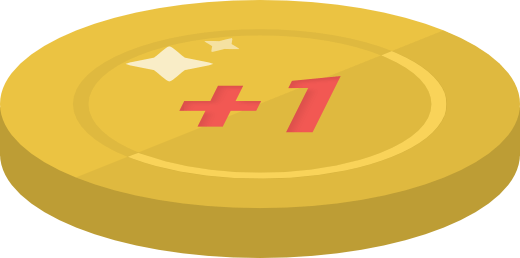|
Deveria, deve: Should, Ought to
|
|

Try again
|
try Again
Tip1:hello
|
|
Lesson 232
Deveria, deve: Should, Ought to
|
Dica
She should quit smoking
=
Ela deveria parar de fumar
Ela deveria parar de fumar
You ought to visit us on weekends
=
Você deve nos visitar nos fins de semana
Você deve nos visitar nos fins de semana
'Should' e 'ought to' são usados para falar sobre 'o que seria bom fazer' ou 'o que seria correto fazer'.


|
'Eles devem começar a malhar.' Escolha a tradução correta, em inglês, de:; Traduza para Inglês |
|
|
They ought to start working out.
|
|
They ought start working out.
|
|
They ought to starts working out.
|
|
They ought to starting working out.
|
Dica
You ought not to go alone
=
Você não deve ir sozinho
Você não deve ir sozinho
You should not go alone
=
Você não deveria ir sozinho
Você não deveria ir sozinho
'Should not' e 'ought to not' são usados para aconselhar sobre 'o que não fazer'.
Note que se diz 'ought + not + to' . Ou seja, 'not' vem no meio.
Se a frase estiver no presente, diremos 'should+ verbo'. Ex: 'I should go' = 'Eu deveria ir'.
Se a frase estiver no presente perfeito, usamos 'should have' + particípio passado. Ex: 'I should have gone' = 'Eu deveria ter ido'.
Note que se diz 'ought + not + to' . Ou seja, 'not' vem no meio.
Se a frase estiver no presente, diremos 'should+ verbo'. Ex: 'I should go' = 'Eu deveria ir'.
Se a frase estiver no presente perfeito, usamos 'should have' + particípio passado. Ex: 'I should have gone' = 'Eu deveria ter ido'.


|
'Eles não devem estacionar o carro em frente à entrada principal.' Escolha a tradução correta, em inglês, de: ; Traduza para Inglês |
|
|
They should not to park the car in front of the main entrance.
|
|
They should not park the car in front of the main entrance.
|
|
They could not park the car in front of the main entrance.
|
|
They might not park the car in front of the main entrance.
|
|
'Maria deveria ter nos contado antes.' Escolha a tradução correta, em inglês, de:; Traduza para Inglês |
|
|
Maria should told us earlier.
|
|
Maria should have to told us earlier.
|
|
Maria should have tell us earlier.
|
|
Maria should have told us earlier.
|
|
'Você devia escutar seu pai.' Escolha a tradução correta, em inglês, de: ; Traduza para Inglês |
|
|
You ought to listen your father.
|
|
You ought to be listen to your father.
|
|
You ought to listen to your father.
|
|
You ought to listened your father.
|
Dica
I think I ought to leave now
=
Acho que devo ir embora agora.
Acho que devo ir embora agora.
Do you think we should leave now?
=
Acha que devemos ir embora agora?
'Should' e 'ought to' também podem ser usados para dar sugestões.
Nestas frases geralmente começam com 'I think', 'I don't think', 'Do you think', etc.
Acha que devemos ir embora agora?
'Should' e 'ought to' também podem ser usados para dar sugestões.
Nestas frases geralmente começam com 'I think', 'I don't think', 'Do you think', etc.


Dica
I should have cleaned the house
=
Eu deveria ter limpado a casa.
Eu deveria ter limpado a casa.
I ought to have bought her a gift
=
Eu deveria ter comprado um presente para ela.
Eu deveria ter comprado um presente para ela.
Para falar no passado, usamos 'should have/ought to have + particípio passado'.


|
'Não devíamos ter gasto tanto com as roupas.' Escolha a tradução correta, em inglês, de: ; Traduza para Inglês |
|
|
We should not have spent that much on the clothes.
|
|
We should not has spent that much on the clothes.
|
|
We should not have spend that much on the clothes.
|
|
We could not have spent that much on the clothes.
|
|
'Eu deveria ter voltado para casa mais cedo.' Escolha a tradução correta, em inglês, de:; Traduza para Inglês |
|
|
I ought have come home earlier.
|
|
I ought to have came home earlier.
|
|
I ought to have come home earlier.
|
|
I ought to has come home earlier.
|
Escolha a opção apropriada, que se encaixa no espaço vazio.
They ______
should |
should had |
should have |
should to |
Escolha a opção apropriada, que se encaixa no espaço vazio.
We ______
should to |
should have |
ought to |
ought |
Escolha a opção apropriada, que se encaixa no espaço vazio.
He ______
should have study |
should has studied |
should have studied |
should have studyed |
Escolha a opção apropriada, que se encaixa no espaço vazio.
I ______
should not to have had |
should not has had |
should not have have |
should not have had |
Escolha a opção apropriada, que se encaixa no espaço vazio.
She ______
ought not have gone |
ought not to have go |
ought not to have gone |
ought not to has gone |
Eles deveriam ter chegado na hora certa.
Posicione as seguintes palavras na ordem correta 

- time.
- should have
- on
- came
- come
- they
Não deveriamos ter quebrado as regras de trânsito.
Posicione as seguintes palavras na ordem correta 

- the traffic rules.
- ought
- to
- we
- have broken
- not
Eles deveriam mastigar bem a comida.
Posicione as seguintes palavras na ordem correta 

- the food
- chew
- they
- chewed
- should
- well.
Você deveria vir com a gente.

Nós deveríamos ir para casa.

|
||||||||
|











| = |
|
|
!
|
Escute
|
Dica |
|
Próxima palavra
|
|
Asia's largest spoken English learning platform
 Sign in with Google
Sign in with Google
 Sign in with Facebook
Sign in with Facebook
or
Please enter a valid Email ID
Username is required
Hey, looks like you are not signed up with us. Please Sign up first! Password is required Forgot password?
Create a new account
Hello English Android App learners,
Click here |

+1

